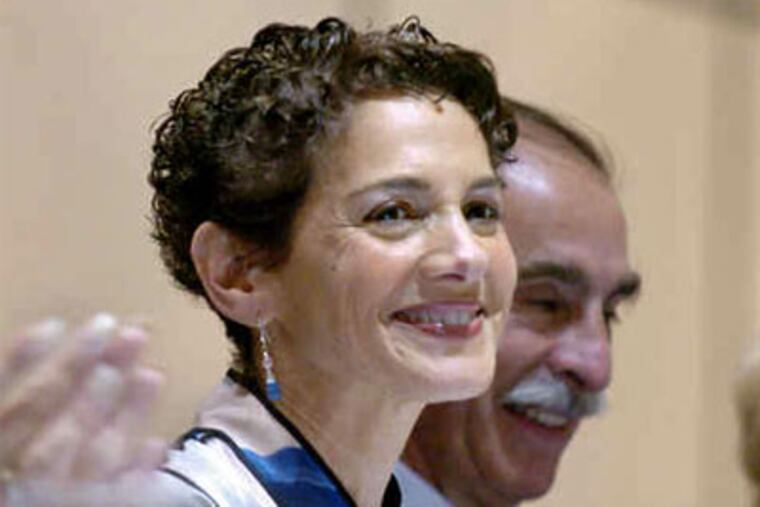PhillyDeals: Supreme Court puts the onus on elected judges
An elected judge shouldn't handle a case when he or she has accepted a big, steaming pile of campaign cash from one of the parties, the U.S. Supreme Court ruled yesterday in a 5-4 vote.

An elected judge shouldn't handle a case when he or she has accepted a big, steaming pile of campaign cash from one of the parties, the U.S. Supreme Court ruled yesterday in a 5-4 vote.
Still, four justices lined up against forcing a judge to recuse. Even if his or her campaign pocketed $3 million from the side that his or her ruling later favored, as in this matter of dueling West Virginia coal barons, Hugh Caperton v. A.T. Massey.
Justice Anthony Kennedy, writing for the liberal-leaning majority, based his decision on the 14th Amendment's due-process clause, which protects citizens from government abuse.
Conservatives led by Chief Justice John Roberts dissented, complaining this will "erode public confidence in the courts" because it'll be tough to enforce.
We wondered about the impact on Pennsylvania, which is one of just six states that "elect all levels of judges in partisan elections," says Lynn A. Marks, executive director of nonpartisan court-reform group Pennsylvanians for Modern Courts. (The others are Alabama, Illinois, Louisiana, Texas, and West Virginia.)
So we asked former Pennsylvania Commonwealth Court Judge Robert L. Byer, current head of the appellate practice in Duane Morris' trial group. His view:
"The Supreme Court's Caperton decision is a narrow ruling concerning an extreme situation, but it highlights the fundamental inconsistency between selecting judges in partisan elections and the principle . . . that judges not only must be impartial, but must maintain an appearance of impartiality.
"Under this decision, when a level of financial or political support for a judicial candidate reaches a level that it reasonably creates an appearance of bias, that judge must recuse." Step aside.
"Litigants should not have to worry that a judge's decision might in some respect be motivated by political considerations, rather than by an impartial application of the law to the evidence."
The court didn't say how much political money is too much. So judges will have to be extra careful, and "not become involved in cases involving parties or lawyers who have significant financial or other involvement in the election process involving that judge."
"This should take the incentive out of providing major support or opposition for judicial candidates upon an attempt to gain advantage in litigation.
"I hope that the Caperton decision ultimately will remove the opposition to Pennsylvania and other states abolishing partisan elections as the method of selecting judges.
"That opposition has come largely from interest groups who use political contributions . . . in a manner that is inconsistent with the due-process principle that the Supreme Court now has vindicated. That should eliminate much of the incentive."
Byer told me that it's been rare for Pennsylvania judges to recuse themselves because of political donations - but that the Caperton case ought to make it more common.
DuPont and GM
DuPont Co., of Wilmington, and General Motors Corp., of Detroit, go way back together.
DuPont President Pierre S. du Pont 2d bought a chunk of GM during World War I, reorganized it in the 1920s, and left his heirs the dominant shareholders of the world's dominant carmaker, until federal antitrust officials made them sell in 1962.
The stocks were listed together on the elite Dow Jones Industrials, from the 1930s until GM was cut in last week's bankruptcy.
How bad will the bankruptcy hurt? DuPont relies on car companies for 20 percent of total sales - "airbags to window assemblies, plastics to car paint" - but that now includes a lot more buyers than just GM, spokeswoman Michelle Reardon told me.
GM owed DuPont a "manageable" $7 million when it filed for bankruptcy. "Given the uncertainty facing the auto industry," Jeffries & Co. analyst Laurence Alexander wrote in a report to clients yesterday, DuPont was already braced for eight-week summer shutdowns this year, versus the usual two weeks.
To DuPont, GM's troubles are old news, and prospects depend more on the price of oil, which it budgeted for this year at $60 a barrel, above the recent $51-and-climbing, and on an economic recovery, Alexander concluded.